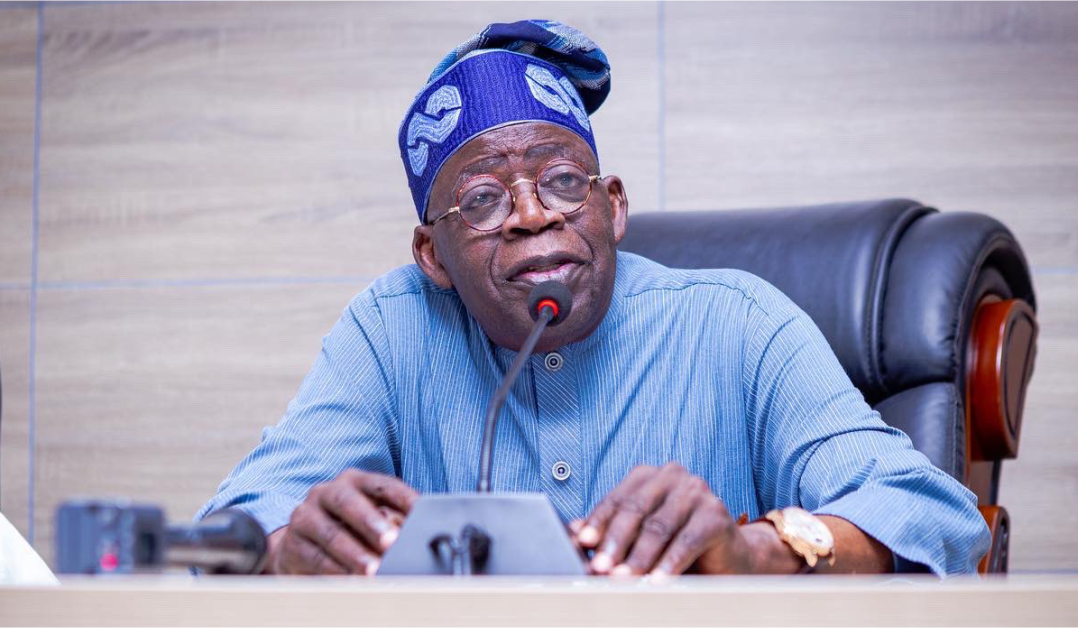POLITICS

TINUBU CONSOLIDATES POWER AS OPPOSITION LEADERS FLOCK TO APC
President Bola Ahmed Tinubu is consolidating power at a stunning pace, with a surge of defections from Nigeria’s opposition threatening to rewrite the country’s political future ahead of the 2027 elections. Governors, lawmakers, and key political figures from the opposition People's Democratic Party (PDP), Labour Party (LP), and New Nigeria Peoples Party (NNPP) are abandoning ship, joining the ruling All Progressives Congress (APC) in droves.
While Tinubu’s camp credits strong leadership and strategic reforms for the political momentum, opposition figures allege a campaign of inducement, blackmail, and judicial pressure.
Multiple sources confirm that four opposition governors — Umo Eno (Akwa Ibom), Peter Mbah (Enugu), Abba Yusuf (Kano), and suspended Rivers Governor Siminalayi Fubara — are poised to defect to the APC. This follows the dramatic exit of Delta State Governor Sheriff Oborevwori, former governor Ifeanyi Okowa, and the entire PDP structure in Delta State, announced after a secretive six-hour meeting in Asaba. Analysts believe President Tinubu’s covert meeting with Fubara in London was a major turning point in the Rivers political crisis.
Critics allege that promises of plum projects and fears of federal reprisals are driving the mass defections. Buba Galadima of the NNPP claims a federal lawmaker confessed to receiving a N95 billion ecological project deal — a claim strongly denied by the APC leadership. “There is no evidence of inducement.
These defections are rooted in admiration for President Tinubu’s leadership,” said APC National Secretary, Senator Ajibola Basiru.
Meanwhile, opposition parties appear to be in freefall. The PDP, Nigeria’s largest opposition party, remains bitterly divided between the camps of Atiku Abubakar and Federal Capital Territory Minister Nyesom Wike, who has openly declared his support for Tinubu’s re-election bid. The Labour Party is grappling with a leadership crisis, with three rival figures claiming control, leading to confusion and further defections. The NNPP is also weighing its options, with talks reportedly underway for either a coalition with Atiku’s bloc or an alliance with the APC. Several prominent NNPP lawmakers have already defected to the ruling party.
Former Kaduna State Governor Nasir El-Rufai and former Secretary to the Government of the Federation, Babachir Lawal, accuse the APC of orchestrating these crises to weaken opposition ranks. Lawal claims that fear — particularly over Tinubu’s perceived influence on the judiciary — is a major driver behind the defections. “Many politicians fear they could lose everything if they remain in opposition," he said.
Presidency sources counter that the surge of new members is simply a natural political response to Tinubu’s stable leadership. They argue that the president’s long experience as an opposition leader has made him skilled at absorbing political adversaries and strengthening his base. "He built the APC from scratch to defeat a sitting president. He knows how to strengthen a political base,” said a senior aide.
Senior officials maintain that no foul play is involved, arguing that in politics, "success naturally attracts allies," and stressing that the APC’s growth is a testament to the president’s effective governance.
As defections mount and opposition parties fragment, Tinubu’s APC appears on course to dominate Nigeria’s political scene through 2027 and beyond, setting the stage for a dramatic shift in the country’s democratic history.
"This represents a significant development in our ongoing coverage of current events."— Editorial Board









